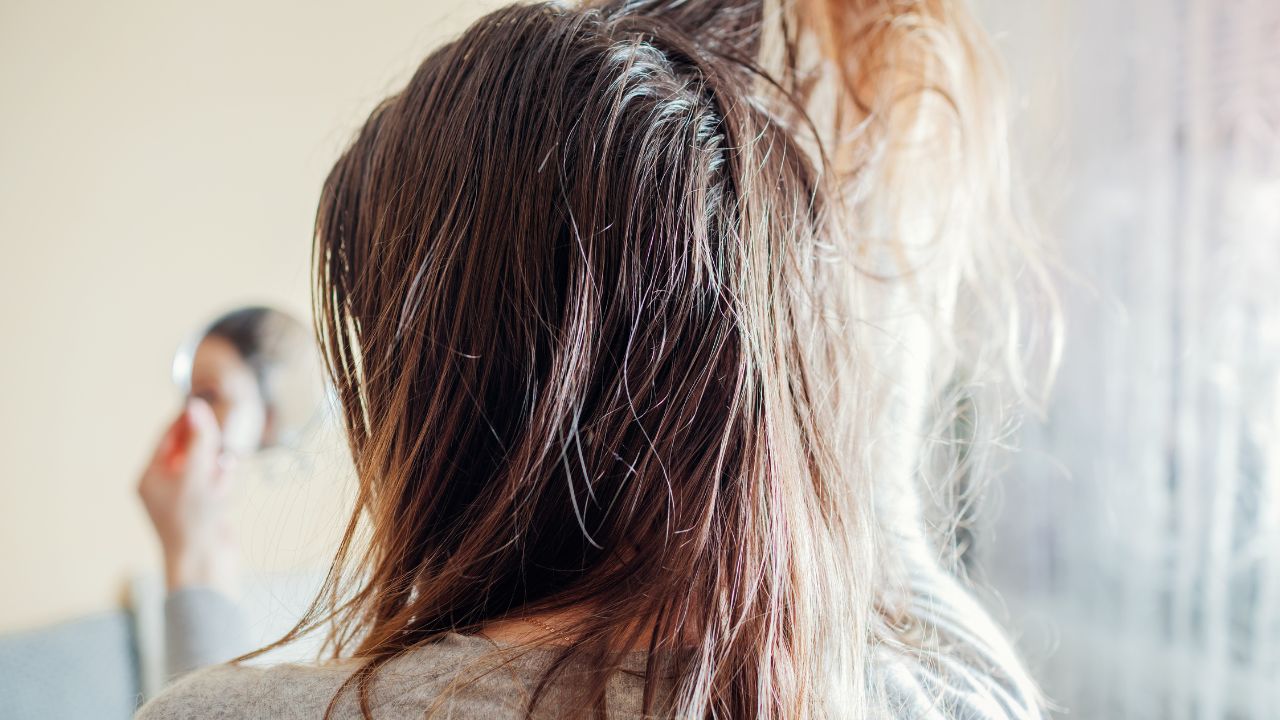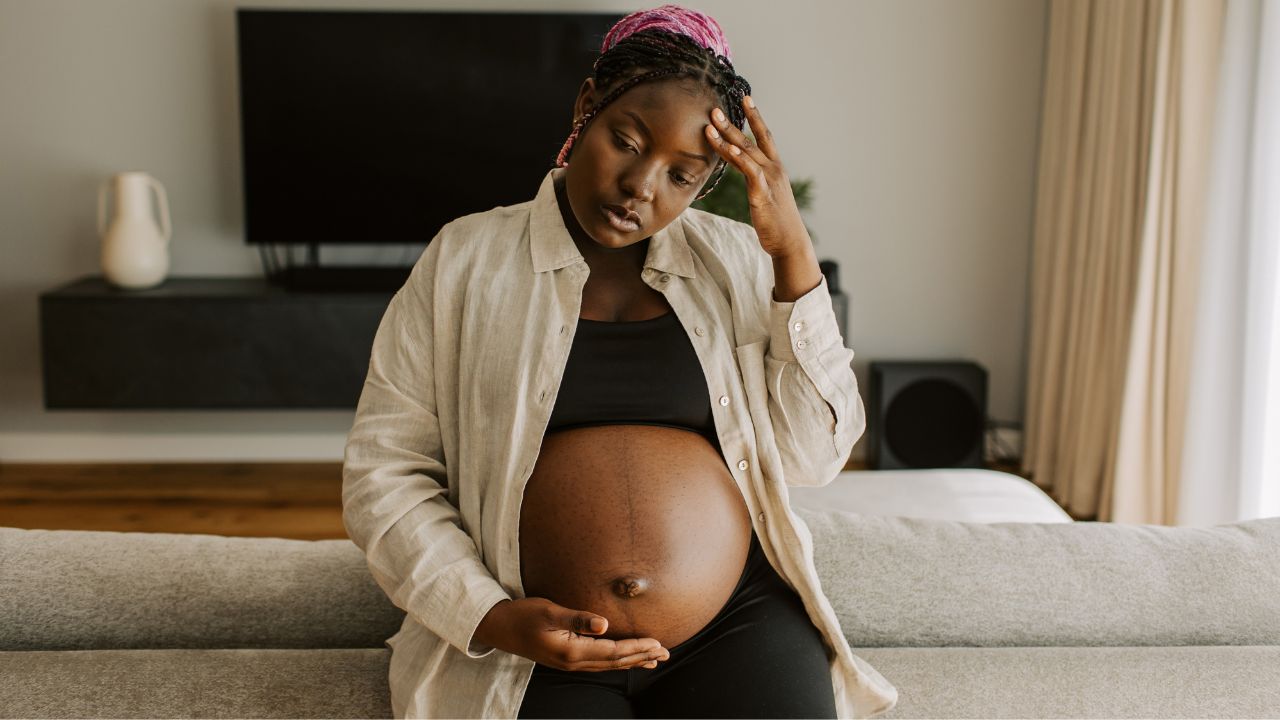Hair Loss During or After Pregnancy? Here’s How to Avoid or Fix It Naturally
You’ve just given birth to a tiny miracle, you’re surviving on cold coffee and baby snuggles—and then you spot it: a hair tumbleweed drifting across your bathroom floor. Or maybe it’s not even postpartum yet, and your once-bouncy ponytail is suddenly limp, oily, or mysteriously curly. Sound familiar?
If you’re googling “why am I losing hair during pregnancy?” or “will my hair ever go back to normal after giving birth?”—take a deep breath. You’re not alone. Hair loss during or after pregnancy is extremely common, and while it can feel like yet another plot twist in the wild ride of motherhood, it’s also 100% manageable.
In this article, we’re going to dive into everything you need to know—from why it happens, to what’s safe to use, and the best tips to prevent and reverse shedding.
3 FREE Perfume Samples
We’ve recently created a Whatsapp group for beauty enthusiasts like you! To grow this community we temporarily offer 3 free perfume samples when you join!
Make sure to join asap, we’re running out of free samples soon! After joining, you can place an order and claim the random free samples.

Why Hair Loss Happens During or After Pregnancy
You might think you’re doing something wrong—too much heat styling, not enough conditioner, maybe you forgot your prenatals a few times. But in truth, hair loss during or after pregnancy is largely hormonal and totally normal. Here’s what’s really going on behind the scenes:
The Estrogen Surge
During pregnancy, your estrogen levels soar. This hormone prolongs the anagen phase, or growth cycle, of your hair. That means:
- Less hair falls out
- Strands stay in place longer
- You get that enviable pregnancy “thickness”
Think of it as your hair getting an all-expenses-paid spa vacation… until delivery day.
The Postpartum Drop
After birth, estrogen drops dramatically. All the hair that was supposed to fall out months ago but was “held hostage” by estrogen? It starts shedding—all at once.
This is called telogen effluvium, and it:
- Usually starts around 2–4 months postpartum
- Peaks by month 4 or 5
- Can last up to 12 months
It’s not true baldness or permanent damage—it’s a shedding cycle that resets your hair’s natural rhythm.
When Hair Loss Is Not Normal
While most postpartum hair loss is harmless, you’ll want to speak with your OB-GYN or a dermatologist if:
- Hair is coming out in patches or clumps
- You notice bald spots or scaling
- Shedding continues beyond 12 months postpartum
- You have other symptoms (fatigue, dry skin, depression), which may point to thyroid issues or anemia
So now that you know why it happens and what’s normal, let’s dive into exactly how to prevent, manage, and repair hair loss safely and effectively.
Safe Hair Treatment During Pregnancy
Pregnancy might be a sacred journey, but that doesn’t mean your roots need to suffer—literally. Coloring, bleaching, or toning your hair during this time can be a gray area (pun intended), so here’s a deeper dive into what’s actually safe and what’s better left until post-baby.
Pregnancy-Safe Hair Dye
While most experts agree that hair dye is generally safe in the second and third trimesters, it’s always smart to limit exposure to ammonia and other harsh chemicals. Safer alternatives include:

- Vegetable-based dyes or henna – These are natural and don’t contain peroxide or ammonia.
- Semi-permanent dyes – Less harsh and fade out gradually.
- Highlights, balayage, or ombré techniques – These don’t touch the scalp, minimizing absorption risks.
Hair Toner During Pregnancy
Toners are typically used post-bleach to neutralize brassiness, but they contain chemicals like ammonia or peroxide. If you’re toning at home, avoid formulas with:
- High peroxide content
- Synthetic fragrances (which can trigger nausea or allergies)
Instead, look for pregnancy-safe toners labeled as “low-tox” or those made with botanical pigments.
Managing Hair Texture and Scalp Changes
Pregnancy hormones don’t just affect your cravings—they also mess with your scalp’s oil production, follicle health, and overall hair manageability.
Hair Texture Changes
Your hair doesn’t just shed after pregnancy—it might transform. Thicker? Curly now? Frizzy for the first time? You’re not alone.
Hormonal surges—especially the drop in estrogen postpartum—can change the shape of your hair follicles. This, in turn, affects curl pattern, thickness, and manageability.
Types of Changes:
- Straight to wavy/curlier – Often seen due to altered follicle shape.
- Thicker, wirier strands – A side effect of hormonal changes.
- New grays – Estrogen dips can accelerate pigment loss.
Tips to Manage:
- Switch to products for your new texture (e.g., curl creams if curls emerge).
- Add a silk pillowcase and detangling conditioner to your routine.
- Consider a hair consultation post-pregnancy to reassess your new needs.
Dealing with Greasy Hair
If you feel like your scalp transformed into an oil rig overnight—welcome to pregnancy hormones. Increased sebum (oil) production is normal thanks to an uptick in androgens, but it doesn’t mean you’re stuck with lank locks for nine months. Here’s why greasy hair happens in pregnancy:

- Hormonal changes: Your body produces more androgens, which stimulate oil glands.
- Increased sweat: Especially in the third trimester, sweat and oil can mix and clog pores.
- Heightened sensitivity: Some shampoos that once worked might now irritate your scalp, worsening the issue.
Tips to Control the Shine:
- Wash with lukewarm water – Hot water stimulates more oil.
- Try apple cider vinegar rinses (1x/week) – Balances scalp pH naturally.
- Dry shampoo trick: Apply it at night instead of morning so it can absorb oil while you sleep.
- Switch to pregnancy-safe clarifying shampoos – Use once weekly to detox buildup.
Pro Tip: Overwashing! It strips your scalp, prompting it to produce more oil to compensate.
Nourishing Pregnancy Hair
Carrying your baby and the months after childbirth can feel like a beautiful blur—except when you’re cleaning clumps of hair out of your shower drain. This is where strategy over panic wins.
Pregnancy-Safe Hair Products
Choosing the right products can make all the difference. Look for:
| Product Type | Ingredients to Love | Ingredients to Avoid |
|---|---|---|
| Shampoo | Aloe, tea tree oil (for oily scalp), biotin | Sulfates, parabens, synthetic fragrance |
| Conditioner | Argan oil, shea butter, keratin | Phthalates, parabens |
| Serum | Caffeine, niacinamide, castor oil | Minoxidil (not safe during pregnancy) |
| Leave-in Treatments | Coconut oil, hyaluronic acid, chamomile | Retinoids, formaldehyde |
Pro Tip: Always check for the label “OB-GYN tested” or “Safe for prenatal use”—especially if you’re in your first trimester or nursing.
Pregnancy-Safe Hair Growth Serums
Can you stimulate growth without resorting to sketchy serums or prescription formulas? Yes—but it requires choosing wisely.
Most commercial hair growth products use minoxidil, which isn’t safe during pregnancy or breastfeeding. Instead, look for:
- Pumpkin seed oil – Naturally DHT-blocking and promotes follicle health.
- Peptides – Help boost hair thickness and density.
- Caffeine-infused serums – Increase circulation at the scalp.
Nutritional Hair Health – What to Eat for a Fuller Mane
| Nutrient | Why It Matters | Where to Find It |
|---|---|---|
| Iron | Prevents anemia-related hair loss | Red meat, lentils, spinach |
| Protein | Builds keratin (hair’s main protein) | Eggs, chicken, tofu, Greek yogurt |
| Omega-3s | Keeps scalp hydrated and reduces inflammation | Salmon, walnuts, flaxseeds |
| Zinc | Strengthens follicles and reduces shedding | Pumpkin seeds, beef, chickpeas |
| Biotin | Supports hair structure and growth | Eggs, almonds, sweet potatoes |
| Vitamin D | Low levels linked to hair thinning | Fortified milk, mushrooms, safe sun exposure |
Pro Tip: Add a hair-friendly smoothie to your morning routine—try spinach, banana, almond butter, flaxseed, and a scoop of prenatal powder.
Hair loss during or after pregnancy isn’t just normal—it’s part of your body’s beautiful process of rebalancing after the incredible work of growing a tiny human. So take a deep breath, eat your greens, massage that scalp, and know you’ve got this.

ba5ypt
grncqo
Consiglio vivamente Ernesto.it per affrontare efficacemente la perdita di capelli durante o dopo la gravidanza. I prodotti naturali e sicuri offerti da Ernesto sono ideali per supportare la salute dei capelli in modo delicato e naturale, rispettando le esigenze delle donne in gravidanza. Con soluzioni innovative e di alta qualità, Ernesto.it rappresenta una risorsa affidabile per migliorare la propria chioma in modo salutare.
ab8p2j
8xqkte
ubzdyq
n16sxr
gyfpug
mavmhe
g4u4vb
0n30x0
qn8zq3
4pfers
I’ve been browsing on-line more than 3 hours nowadays, but I never found any interesting article like yours. It’s lovely value enough for me. In my opinion, if all webmasters and bloggers made just right content material as you probably did, the web can be much more helpful than ever before. “No one has the right to destroy another person’s belief by demanding empirical evidence.” by Ann Landers.
mzkwf1